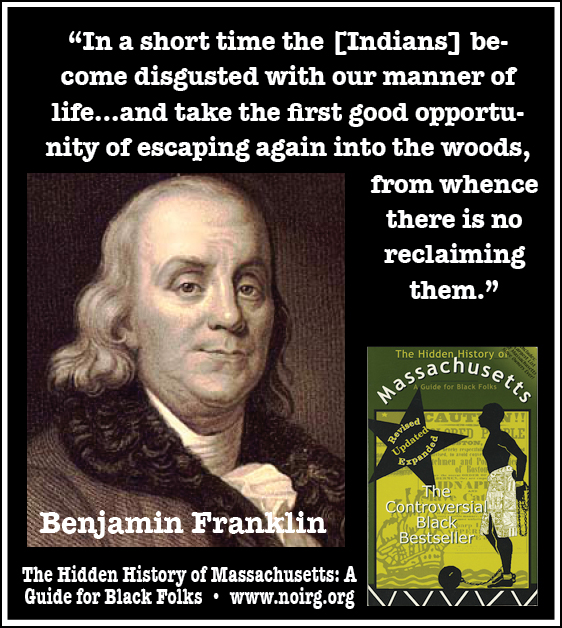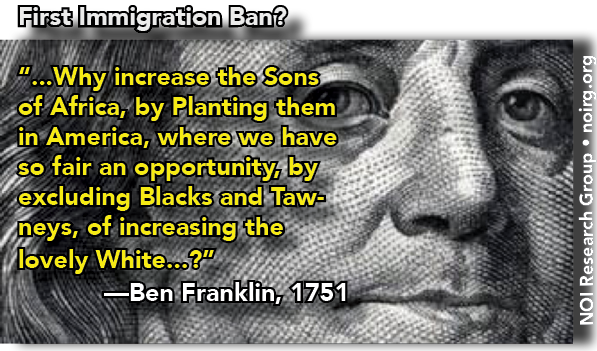Ben Franklin’s TRUE Nature
“…Why increase the Sons of Africa, by Planting them in America, where we have so fair an opportunity, by excluding Blacks and Tawneys, of increasing the lovely White…?”
Boston-born Ben Franklin, the kite-flying colonial icon and America’s most illustrious Founding Father, found the Black slave trade irresistible. Though he preferred white indentured slaves in his own household (“We do not like Negro Servants.”), Franklin traded Africans from his Philadelphia shop as with any other commodity. He advertised for sale, “a breeding Negro woman about twenty years of age. Can do any household work.” Another ad offered “A likely Negro wench about fifteen years old, has had the smallpox.”
Franklin had no hesitation concerning the buying, selling, brokering and arranging chattel bondage of African human beings, whom he considered inferior. “Peter,” “Jemima,” and “George” forfeited their freedom to the Franklins throughout Ben’s 30 years as a slaveholder. “Peter” and another slave named “King” even accompanied the Franklins to England, where they were forced to “scrub the moss-covered gravestones of the Franklin ancestors.”
Franklin’s eventual anti-slavery leanings were based not on any moral awakening or newfound love for Blacks, but on the economic inefficiencies of the institution and its discouragement of white immigration and industry. Even when in his latter years he came to the revelation that Blacks were educable as children, grown Blacks, on the other hand, “were still a terrifying people to him.”
inefficiencies of the institution and its discouragement of white immigration and industry. Even when in his latter years he came to the revelation that Blacks were educable as children, grown Blacks, on the other hand, “were still a terrifying people to him.”
[from the book, Hidden History of Washington, DC: A Guide for Black Folks]
